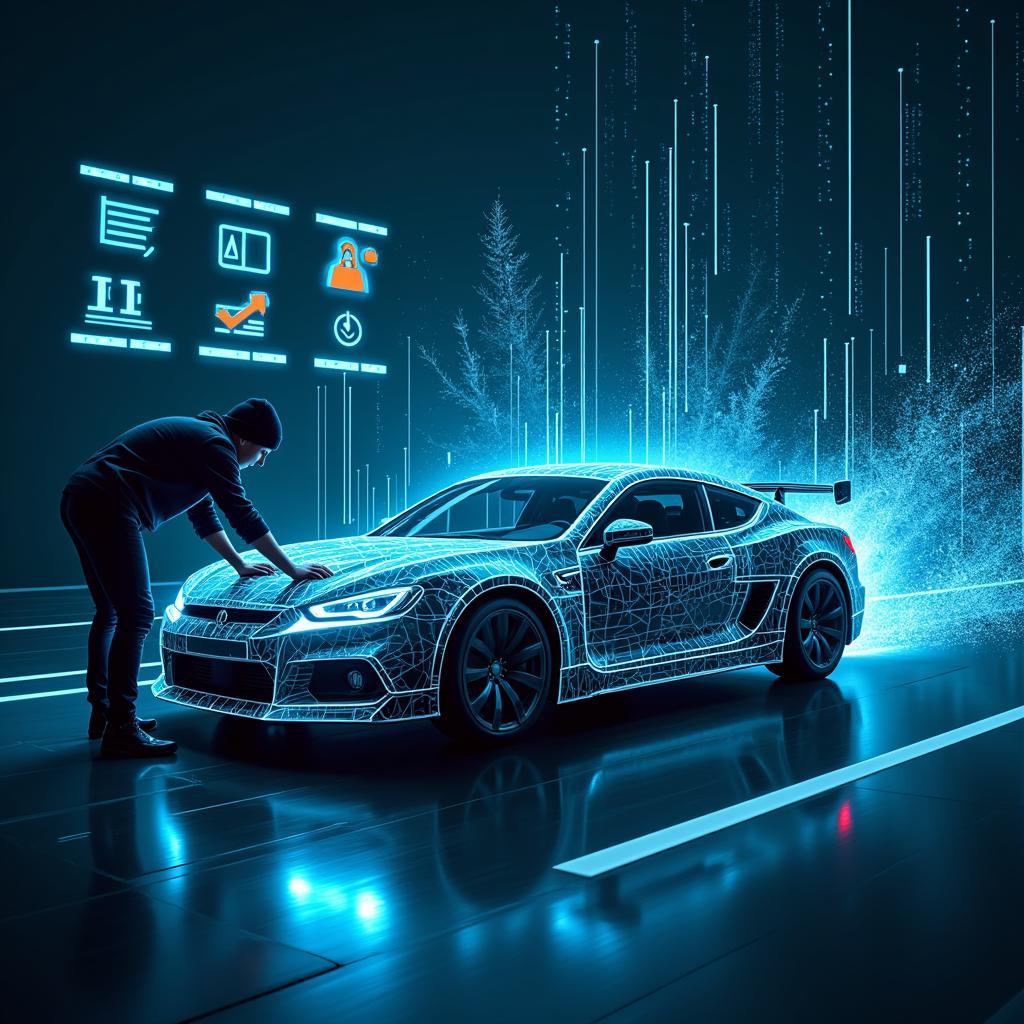The automotive industry is rapidly embracing artificial intelligence (AI), leading to the development of self-driving cars and advanced driver-assistance systems (ADAS). While AI promises a future of safer and more efficient driving, it also presents a number of challenges and problems that need to be addressed. This article will delve into the most prevalent issues associated with AI in cars, providing insights for car owners, repair shop owners, and automotive technicians alike.
Understanding AI in Cars
AI in cars refers to the use of computer systems to simulate human intelligence and decision-making capabilities. These systems are designed to learn from data, adapt to changing environments, and make autonomous or semi-autonomous driving decisions. While the concept is appealing, the practical implementation of AI in cars faces numerous hurdles.
Common Problems with AI in Cars
Data-Driven Decisions: The Problem of Bias
One of the biggest challenges with AI in cars is its reliance on data. AI systems are trained on massive datasets, which can contain biases and inaccuracies. This can lead to unintended consequences, such as the system making discriminatory or unsafe decisions. For example, if a self-driving car is trained on data collected primarily in urban areas, it may not be able to navigate rural roads effectively.
Ethical Dilemmas: Who’s Responsible in an Accident?
The introduction of AI in cars raises complex ethical questions. In the event of an accident involving a self-driving car, who is responsible: the driver, the car manufacturer, or the AI software developer? These issues require careful consideration and legal frameworks to ensure accountability.
Security Vulnerabilities: Hacking and Cyberattacks
AI systems are vulnerable to hacking and cyberattacks. Hackers could potentially gain control of a self-driving car, causing damage or even putting lives at risk. Secure coding practices, robust encryption, and continuous security updates are essential to mitigate these threats.
 AI Car Cybersecurity
AI Car Cybersecurity
Limited Adaptability: Dealing with Unforeseen Events
AI systems are typically trained to handle specific scenarios. They may struggle to adapt to unexpected or unusual situations that were not part of their training data. This limitation can lead to crashes or other accidents if the system is unable to make a safe decision.
Over-Reliance on AI: Human Drivers Losing Skills
As driver-assistance systems become more sophisticated, there’s a risk of human drivers becoming over-reliant on AI. This can lead to a decline in driving skills, making it harder to take control of the vehicle in emergency situations.
Maintenance and Repair: Specialized Skills Needed
Maintaining and repairing AI systems in cars requires specialized skills and knowledge. Traditional automotive technicians may need to upgrade their expertise to work with these advanced technologies.
Expert Insights: Navigating the Challenges of AI in Cars
“AI in cars has the potential to revolutionize transportation, but we need to be mindful of its limitations. The key is to ensure that AI systems are developed responsibly and ethically, with human safety at the forefront.” – Dr. Emily Carter, Professor of Computer Science and Artificial Intelligence
“It’s not just about the technology; it’s about how we integrate AI into our society. We need clear regulations, robust testing, and continuous monitoring to ensure that AI in cars is safe and reliable.” – John Thompson, CEO of a leading automotive technology company
FAQ: Common Questions about AI in Cars
Q: Are self-driving cars really safe?
A: While self-driving cars have the potential to be safer than human drivers, they still face challenges in handling complex and unpredictable situations. Ongoing research and development are essential to improve safety and reliability.
Q: How do I maintain my car’s AI systems?
A: Regularly update your car’s software to ensure the AI systems are running smoothly and efficiently. If you encounter any problems, consult a qualified automotive technician specializing in AI systems.
Q: What are the future implications of AI in cars?
A: AI in cars is expected to continue to evolve, leading to advancements in self-driving technology, traffic management, and even personalized driving experiences.
Q: Is AI in cars just a fad, or is it here to stay?
A: AI in cars is here to stay. The automotive industry is heavily investing in research and development, making this technology an integral part of the future of transportation.
Contact Us for Expert Guidance
At AutoTipPro, we are dedicated to providing comprehensive solutions for all your automotive needs, including AI in cars. Our team of experienced technicians is equipped to address any concerns you may have and provide expert guidance on maintaining and repairing AI systems in your vehicle.
Contact us today for a free consultation:
Phone: +1 (641) 206-8880
Office: 500 N St Mary’s St, San Antonio, TX 78205, United States
We are committed to helping you navigate the evolving world of AI in cars, ensuring a safe and enjoyable driving experience.




Leave a Reply